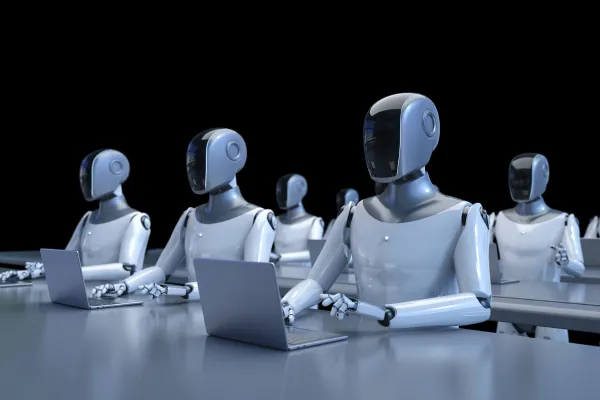
What Is an AI-First Company—and Why Are So Many Talking About It?
From banking to recruitment to startups, more and more businesses are starting to use the term “AI-first.” But what does that really mean>
Behind the headlines about automation and job cuts is a deeper shift. Some companies are starting to build with artificial intelligence not just as a tool, but as a core part of how they operate. But this shift isn’t without tension. In fact, some teams are pushing back.
At Politico, a leading newsroom, journalists entered arbitration with management this year after discovering that AI tools were being used to generate content. The union argued that this move violated their employment agreement—raising big questions about transparency, creative ownership, and job security.
What Is an AI-First Company?
In short, an AI-first company doesn’t just use AI—it’s designed around it. These businesses don’t simply automate tasks here and there. They rethink entire systems with AI in mind, often using it to:
Analyse data and personalise customer experiences in real time
Handle admin, documentation, or customer support automatically
Speed up internal workflows like hiring, onboarding, or compliance
Build smarter products that improve as they’re used
In many cases, it’s used to take over high-volume, repetitive work—so people can focus on more creative or complex problems.
OpenAI CEO Sam Altman summed it up best: “AI agents will materially change the output of companies.” It’s not just about saving time—it’s about changing what’s possible.
Real-World Examples (And What They Show Us)
Not every company that adopts AI takes the same approach, but these examples help illustrate the shift:
IBM
IBM paused hiring for nearly 8,000 roles in areas like HR, saying many of those jobs will eventually be done by AI.
JPMorgan Chase
With an $18 billion tech budget, JPMorgan is embedding AI into everything from fraud prevention to investment analysis. By using AI to make operations more efficient, the bank is spending $95 billion less on hiring in 2025.
Hang Seng Bank (Hong Kong)
In May 2025, the bank announced layoffs and internal restructuring as part of a move to modernise operations—using more digital tools, including AI. Some departments were slashing as much as 50 percent of staff.
CozmoX (Dubai)
This UAE startup is offering AI agents that perform the work of 100 employees—helping clients scale while managing costs.
Why This Concept Is Catching On
The idea of being AI-first is appealing for several reasons. It can cut costs, speed up operations, and offer better service at scale. For businesses in competitive markets, it’s a way to stay ahead.
But it’s not all upside. There’s growing debate about:
Regulation: The EU’s AI Act is set to become the world’s first major law on AI, introducing fines and red tape for companies using “high-risk” systems.
Ethics: Companies are under pressure to be transparent about when AI is used—especially in hiring, content creation, and customer service.
Bias and accountability: If an AI system makes a mistake—say on credit decisions—who’s responsible?
The Politico case is one of many showing that workers and industries are still figuring out how AI fits into professional standards, contracts, and creative rights.
So while AI-first thinking is gaining ground, it’s not a one-size-fits-all solution. Many businesses are still experimenting—looking for the right balance between automation and human value.
At Eagle Partners UAE, we’re actively tracking how AI is changing recruitment, workforce planning, and cross-border hiring. If you’d like to explore how these shifts could affect your industry, we’re happy to chat.